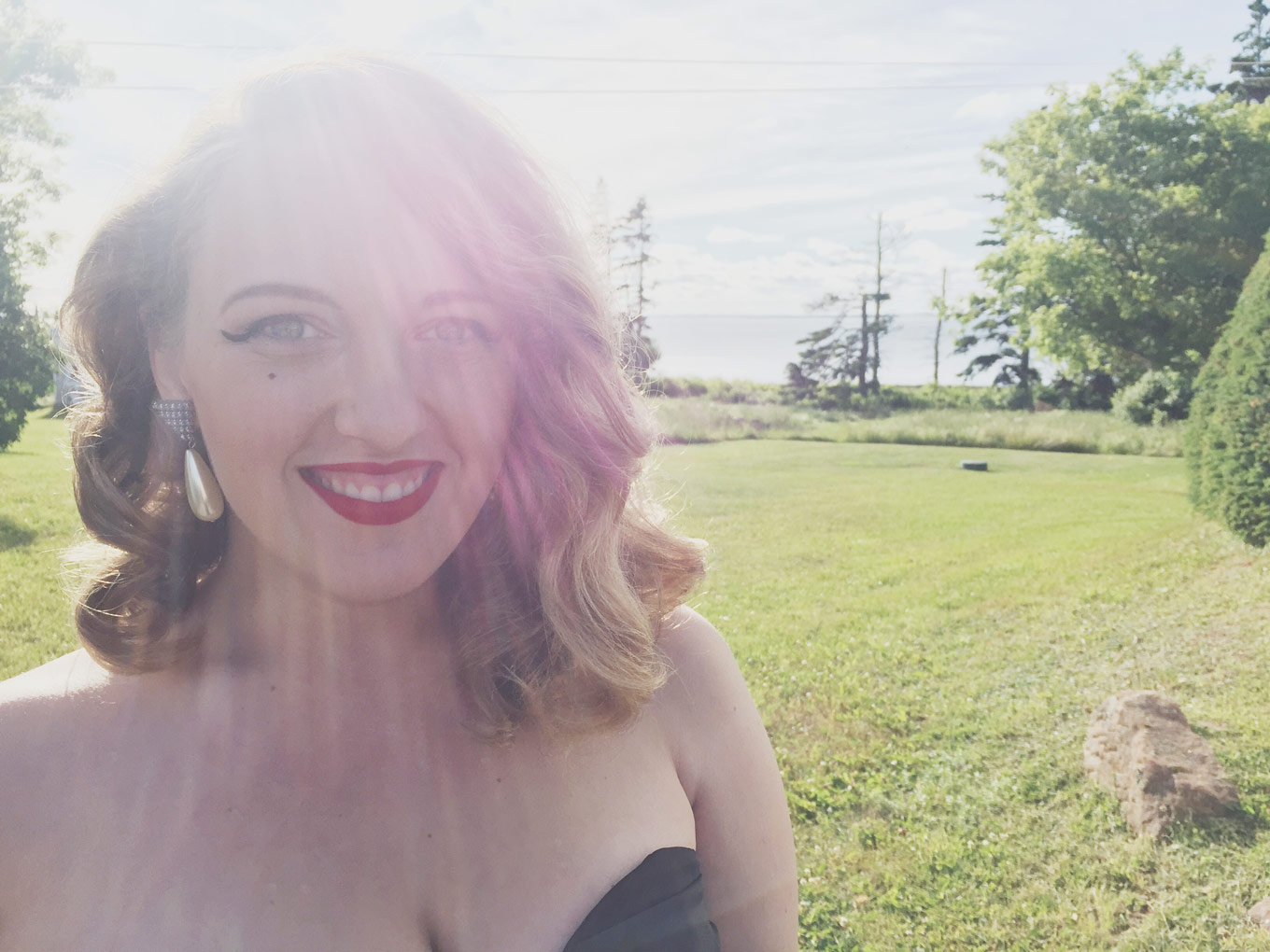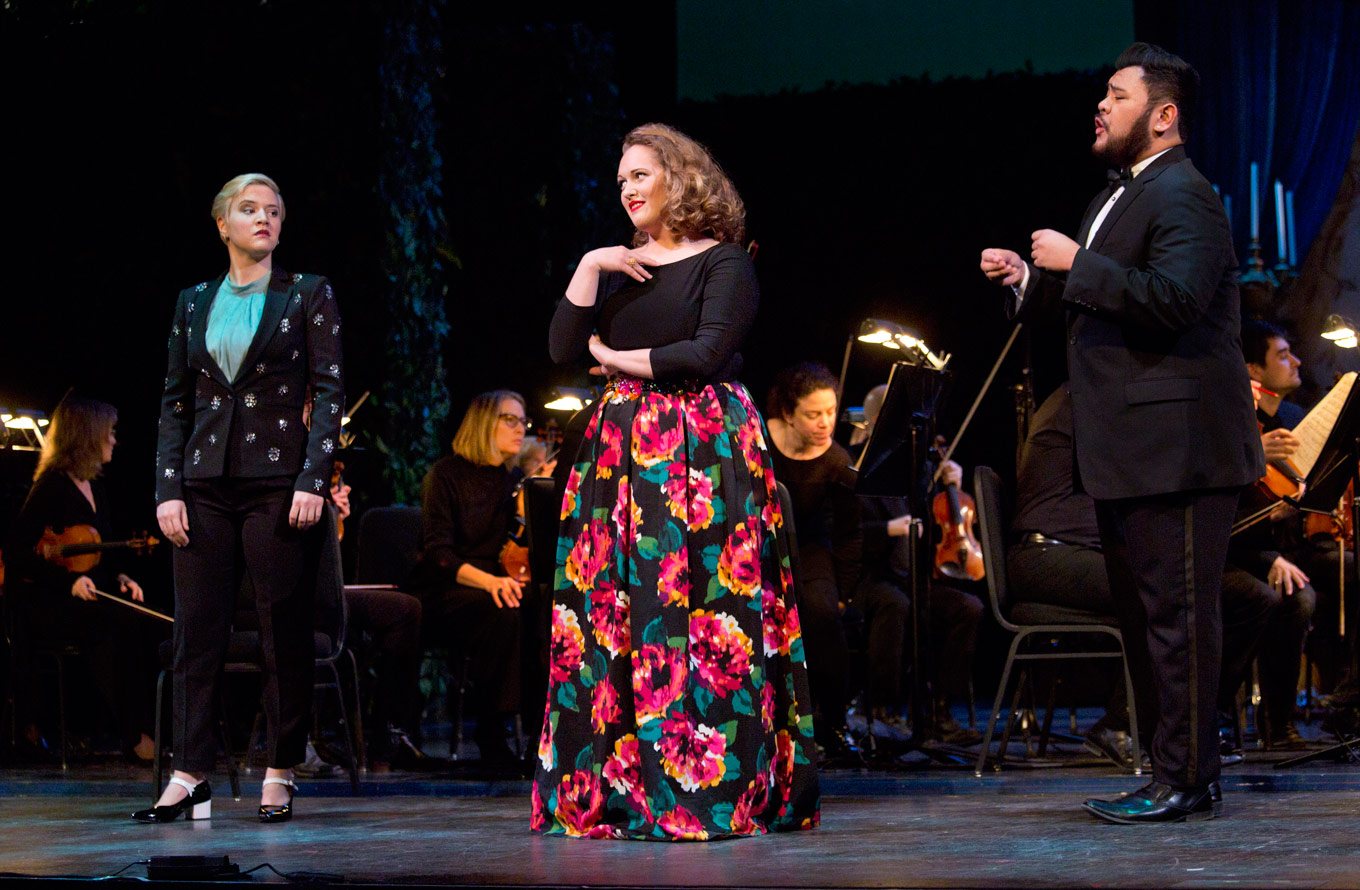
Spotlight on: Danika Lorèn
InterviewToronto-based soprano, composer, and founding member of Collectìf, Danika Lorèn is between seasons at the Canadian Opera Company, where she’s a member of the Ensemble Studio. She just wrapped a run of Claude Vivier’s Kopernikus with Against the Grain Theatre at The Banff Centre, in a new production by Joel Ivany which earned rave reviews. This week you can catch her at the Toronto Summer Music Festival’s “A Night at the Opera” concert, July 27, 7:30pm at Koerner Hall.
We spoke with the savvy soprano about baritone envy and finding some much-needed persective within a volatile career path.
Why do you sing, and why are you doing it professionally?
Singing has always felt like an essential part of me and I’ve been so fortunate to have had the opportunity to study piano and voice from a young age. More than singing, I have always loved performing. The stage really does feel like home no matter what I’m doing up there.
More specifically, I love the constant physical and intellectual challenges that opera provides; I love the depth of drama that is only possible with an orchestra at your feet. I love the veil of mystery that comes when people are communicating and understanding each other in a language they don’t even speak, and the feeling of deep unity that comes from true collaboration. I guess it’s not really a profession, it’s love :).
What does “good singing” mean to you? What does it feel like when you achieve it?
I understand the big picture of singing as a balancing act of different kinds of counterpoint. Physically it is a balance of tension and release, for the ego it is a balance between leading and listening, and for the mind it is between over-thinking and complete emotional abandonment. Backstage it’s a balance between absolute confidence and complete anxiety. It’s a real mind-f@#$, but when you get a taste of that balance it is absolutely exhilarating.

What do young singers need more of?
Patience, camaraderie and confidence.
One thing we have to give up as artists is the ability to control our own schedule, both long term and short term. Stay flexible and stay hungry and don’t take it personally if now is not your time. Don’t be resentful towards people who are in the spotlight. It is so easy to feel that this business is one big competition, but it’s much more important to focus that energy inward and do your best work. In that work, be creative and find inspiration! Experiment and put time and thought into your work, and show people something you/they didn’t know was possible. Trust that your voice has something important to say, and pipe up!
Do you have any “bucket list” roles you’d like to sing (realistically or otherwise)?
Realistically, I would love to be Cleopatra (Handel, Massenet, Barber…anyone really). She is so fascinatingly powerful. Leaving reality, I would love to get inside Eugene Onegin’s head, or Pagliacci’s. Really, there are few roles I wouldn’t enjoy playing. I also go crazy for “Dich, teure Halle” from Tannhäuser anytime I hear it. And of course after watching Christine Georke’s Immolation Scene [in Gotterdämmerung at the COC] night after night this past season I’ve had fiery dreams of greatness, but she seems to have that scene on lock so I’ll just keep dreaming.

What have you learned about your career as a singer, solely through professional experience?
- Be a good colleague not because you want to make a good impression on people, but because you care about the working environment that you are part of. A negative rehearsal space can be poisonous and a little bit of camaraderie can make a world of difference.
- Make time for yourself. It can be really difficult to manage your life as a human while you're focused on your life as an artist and vice versa. Everyone has a different way of maintaining balance, so it’s important to actively seek out your own way.
- Don't guilt-trip yourself for your mistakes. Just fix them and move on.
- There's no such thing as "over-prepared".
Readers, do you know someone deserving of a little Spotlight? Let us know! Get in touch at [email protected].


Comments